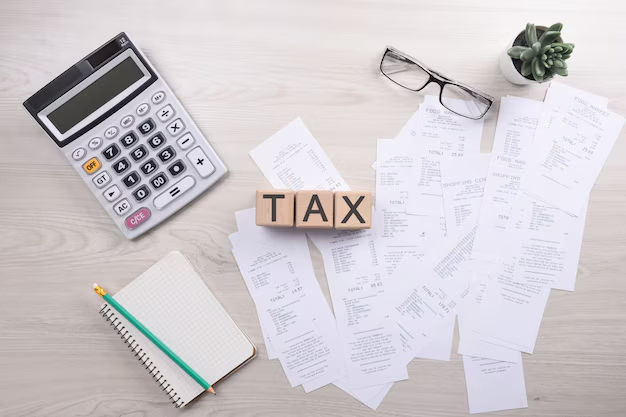Your Guide to Are Home Association Fees Tax Deductible
What You Get:
Free Guide
Free, helpful information about TAX FAQ and related Are Home Association Fees Tax Deductible topics.
Helpful Information
Get clear and easy-to-understand details about Are Home Association Fees Tax Deductible topics and resources.
Personalized Offers
Answer a few optional questions to receive offers or information related to TAX FAQ. The survey is optional and not required to access your free guide.
Homeowner Association Fees: Are They Tax Deductible?
Picture this: You have just moved into a beautiful neighborhood with a stunning community pool, tennis courts, and well-maintained landscaping. These perks come with a price tag in the form of homeowner association (HOA) fees. As tax season looms, you might wonder if these fees could offer any tax relief. The straightforward question is: Are HOA fees tax deductible? Navigating tax laws can often feel like trekking through a maze. Let's dive into the details and demystify how HOA fees fit into your tax obligations.
Understanding Homeowner Association Fees
Homeowner association fees are payments collected by the HOA to manage, maintain, and improve shared amenities and services in a community. These fees can cover a range of benefits including community swimming pools, security services, landscaping, and communal areas maintenance.
What Do HOA Fees Typically Cover?
While fees vary across communities, here are common inclusions:
- Maintenance and Repairs: Covers general upkeep of common areas and facilities.
- Utilities for Shared Areas: Payment for utilities in common areas like water for landscaping or lighting.
- Insurance: Often includes insurance for community property and liability.
- Reserves for Future Repairs: A portion is usually earmarked for future large-scale repairs or replacements.
Understanding what you’re paying for can help you gauge the value you receive from these fees. But does any of this translate to tax deductions?
Evaluating the Tax Deductibility of HOA Fees
The general rule for personal residences is that HOA fees are not tax deductible. These fees are personal expenses associated with living in your residence, akin to paying for utilities or landscaping services. However, there are exceptions if your property serves other purposes beyond being your home.
When HOA Fees Might Be Deductible
Rental Properties and HOA Fees
- If you rent out your property, HOA fees can usually be deducted from your rental income as a business expense. This is because your property generates income, putting it into the realm of business expenses in the eyes of the IRS.
Home Office Deduction
- For taxpayers who meet specific criteria for a home office deduction, a portion of HOA fees could be deductible. If you use part of your home exclusively and regularly as your principal place of business, you may qualify for this deduction.
Part of a Home Sale
- In some cases, HOA fees may indirectly become part of your property’s basis or impact the calculation of capital gains when selling your home. It's worth consulting a tax professional for this nuanced area.
Related Considerations and Clarifications
How to Document Deductions Properly
When claiming any tax deductions related to HOA fees:
- Maintain Thorough Records: Keep invoices, HOA statements, and other relevant documentation as a record of your expenses.
- Harmonize with Rental Income Reporting: For rental properties, align these deductions with your reported rental income for consistency.
Special Assessments
Occasionally, HOAs levy special assessments for substantial projects like roof replacements or road pavements. These are also generally not deductible for personal residences. However, if the assessment enhances your property’s value, it could be added to your home's basis.
HOA Fees in Vacation Homes
If you use a vacation home part of the year and rent it out, the deductible nature of HOA fees becomes a split calculation based on personal vs. rental use. It's essential to grasp the specifics that dictate how much you can deduct, sometimes pro-rated by the days the home is rented versus personal use.
Summarizing Key Considerations
Here is a summary of key points to keep in mind regarding HOA fees and taxes:
- 🌍 Personal Use: Generally, HOA fees aren’t deductible if the property is your primary residence.
- 🚪 Rental Properties: Fee deductions are possible against rental income.
- 🏢 Home Office: Partial deductions may apply under specific circumstances.
- 📊 Record Keeping: Always maintain well-organized documentation to support any claims.
- ⚖️ Consult Professionals: Tax laws can be complex and nuanced; professional guidance is advisable when uncertain.
Navigating Your Tax Strategy With HOA Fees
The concept of tax deductibility can sometimes appear daunting, yet understanding the key principles around HOA fees can guide you in efficiently managing your finances. Regular homeowners generally cannot deduct these fees, but those with rental properties or qualifying home office arrangements have potential avenues for deductions.
As you approach tax planning, consider how your property is utilized throughout the year, the documentation needed, and when professional advice could effectively widen your tax strategy. Each homeowner’s situation possesses unique variables, so staying informed and proactive can optimize your financial outcomes.
Remember, the ultimate goal is to align your HOA expenses strategically with tax opportunities where possible, giving you peace of mind and a clearer path through the tax landscape.
What You Get:
Free TAX FAQ Guide
Free, helpful information about Are Home Association Fees Tax Deductible and related resources.

Helpful Information
Get clear, easy-to-understand details about Are Home Association Fees Tax Deductible topics.

Optional Personalized Offers
Answer a few optional questions to see offers or information related to TAX FAQ. Participation is not required to get your free guide.


Discover More
- a Sales Tax Is a Type Of
- a Tax Exemption
- Am I Tax Exempt
- Are 401k Contributions Tax Deductible
- Are 529 Contributions Tax Deductible
- Are 529 Plan Contributions Tax Deductible
- Are Association Fees Tax Deductible
- Are Attorney Fees Tax Deductible
- Are Campaign Contributions Tax Deductible
- Are Charitable Donations Tax Deductible
